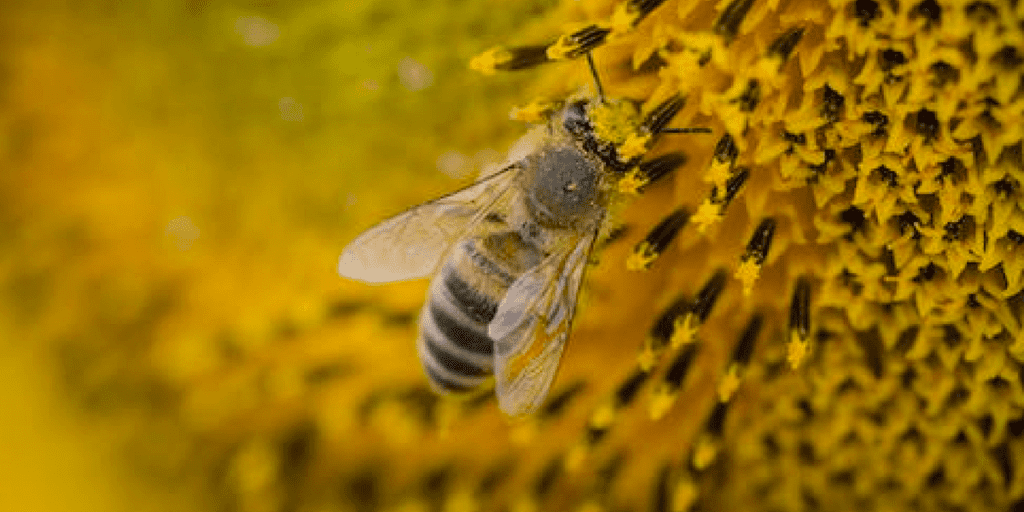Introduction
Bee pollen is an extraordinary natural product with numerous health benefits. It is considered one of the most complete superfoods due to its richness in essential nutrients. In this article, we will explore in detail what bee pollen is, how it is obtained, and what its nutritional composition is.
What is bee pollen?
Bee pollen is the fine, granular dust that bees collect from flowers. It is the main source of protein and food for worker bees and is used to feed the larvae in the hive. Bee pollen is a combination of flower pollen, flower nectar, and enzymes that bees add during their collection.
Bee pollen collection process
The collection of bee pollen is done through the use of pollen traps placed at the entrance of the hive. These traps have a mesh that allows the bees to pass through, but retains the pollen. As the bees enter the hive, small amounts of pollen are shed and stick to their bodies. By passing through the pollen traps, the pollen is collected and stored.
Once collected, the bee pollen is carefully dried to reduce its moisture content. This is done to preserve its nutritional properties and prevent the growth of microorganisms. Dried pollen is stored under suitable conditions to maintain its freshness and quality.
Composition and nutritional value of bee pollen
Bee pollen is a highly nutritious food and is made up of a unique combination of essential nutrients. Its composition varies depending on the geographical location and the surrounding flora, but in general, bee pollen contains:
- Proteins:
Bee pollen is an excellent source of high-quality protein. It contains all the essential amino acids necessary for the formation of proteins in the human body. - Vitamins:
It is rich in B vitamins, which play a crucial role in energy metabolism and brain function. It also contains vitamins A, C, D, and E, which are antioxidants and contribute to general health. - Minerals:
Bee pollen is a source of minerals such as calcium, iron, zinc, magnesium, and potassium, which are important for the proper functioning of the body. - Antioxidants:
Contains a variety of antioxidants, including flavonoids and carotenoids, which protect the body from damage caused by free radicals and oxidative stress. - Enzymes and Phytochemicals:
Bee pollen contains enzymes that facilitate digestion and absorption of nutrients. It also contains phytochemicals, such as phytosterols, which have been associated with health benefits, including lowering cholesterol and protecting against cardiovascular disease. - Essential fatty acids:
Bee pollen contains essential fatty acids, such as omega-3 and omega-6, which are important for cardiovascular health, brain function, and skin health. - Fiber:
It is a good source of dietary fiber, which promotes healthy digestion and helps maintain bowel regularity.
Nutritional value per 100 grams of bee pollen (approximately):
- Calories: 318 kcal
- Protein: 22 grams
- Fat: 5 grams
- Carbohydrates: 55 grams
- Fiber: 7 grams
- Vitamins: vitamin A, vitamin C, B complex vitamins (B1, B2, B3, B6, B9), vitamin E
- Minerals: calcium, iron, zinc, magnesium, potassium, phosphorus.
How to use bee pollen
Bee pollen can be consumed in various ways, as part of the daily diet. Here are some popular ways to use it:
- Consume it directly:
You can take a teaspoon of bee pollen directly, preferably in the morning on an empty stomach. You can combine it with water, juice or add it to smoothies or yogurts. - Mix it with food:
Bee pollen can be sprinkled on salads, cereals, granolas, fruit mixes, or even in dessert recipes. - Combine it with honey:
You can mix bee pollen with honey to create a delicious nutritious combination. Simply mix a tablespoon of bee pollen with a tablespoon of honey and enjoy as an energy supplement. - Incorporate it into recipes:
Bee pollen can be used as an ingredient in healthy recipes such as smoothies, energy bars, breads, muffins, and more.
It is important to remember that some people may be allergic to bee pollen, so it is recommended to start with small amounts and watch for any allergic reactions. If you have any allergies to bee stings or related allergies, consult a health professional before consuming bee pollen.
Conclusion
Bee pollen is a treasure of nature, full of essential nutrients and health benefits. Its collection and obtaining follow a careful process to preserve its nutritional properties. Rich in protein, vitamins, minerals, and antioxidants, bee pollen can improve overall health, strengthen the immune system, provide energy, and support cellular function. Incorporating it into your daily diet is an excellent way to take advantage of all the benefits it offers.
Remember that bee pollen is not a substitute for a balanced and healthy diet, but rather a nutritional supplement. It is always advisable to consult a health professional before incorporating any supplement into your diet.
Discover the wonderful benefits of bee pollen and make the most of its nutritional properties to lead a healthier and more balanced life!


